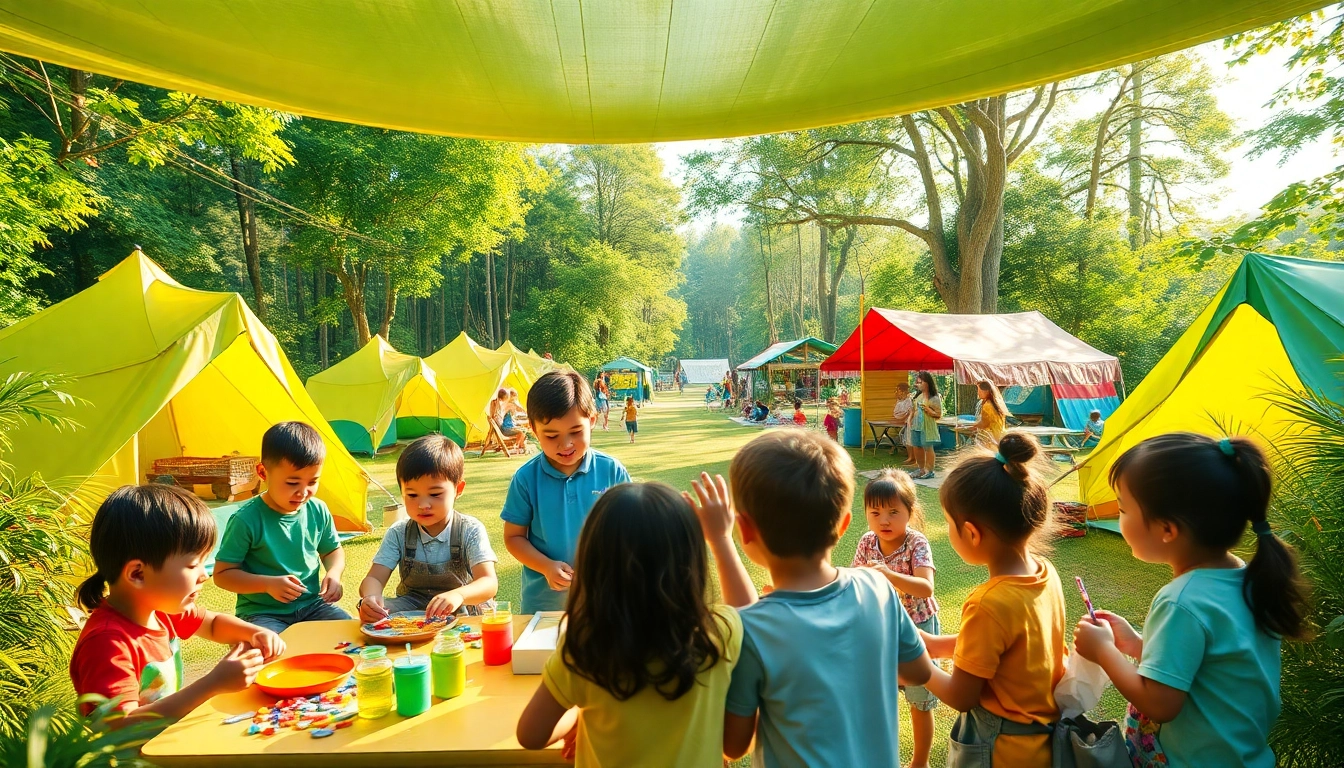Understanding Holiday Camps
What Are Holiday Camps?
Holiday camps represent a unique blend of accommodation, recreational activities, and community engagement, primarily found in the United Kingdom. Designed to cater to families and young individuals, these camps foster a fun and interactive environment where guests participate in various activities while enjoying their holidays. Instead of solely focusing on merely providing a place to stay, holiday camps encourage guests to immerse themselves in the camp culture, making the most of both leisure and social opportunities. In essence, holiday camps offer a more enriched holiday experience compared to traditional lodging options.
History and Evolution of Holiday Camps
The history of holiday camps can be traced back to the early 20th century, where the concept began as a way for working-class families to enjoy affordable vacations. The original models emphasized inclusivity, bringing together children and adults from different backgrounds to enjoy structured activities and entertainment.
One significant development came in the 1930s with the establishment of Butlins, creating a prototype of modern holiday camps that focused on facilities, organized activities, and entertainment. This model has evolved over the decades, incorporating various amenities such as swimming pools, sports facilities, and themed events while adapting to the changing needs and preferences of holidaymakers.
Types of Holiday Camps Available
Holiday camps are diverse and can be categorized into several types, each serving different demographics and needs:
- Family Holiday Camps: These camps focus on providing family-friendly activities and accommodation, allowing family members of all ages to engage in shared experiences.
- Children’s Holiday Camps: Specifically aimed at children and teenagers, these camps focus on providing educational and recreational activities while nurturing personal growth and social skills.
- Sports Camps: Aimed at sports enthusiasts, these camps provide specialized training, coaching sessions, and competitive opportunities in various sports.
- Adventure Camps: These camps prioritize outdoor activities and adventures such as hiking, camping, and team-building exercises designed to foster resilience and teamwork.
- Special Interest Camps: These focus on particular interests or skills, including arts and crafts, science camps, and music camps, allowing participants to explore their passions thoroughly.
Benefits of Holiday Camps for Children
Socialization and Friendship Building
One of the most significant advantages of holiday camps is the opportunity they provide for children to socialize and forge friendships. Surrounded by peers, children learn to interact in group settings, sharing experiences and developing camaraderie. As they work together on group tasks or play team sports, they form bonds that often extend beyond the camp environment.
Skill Development Through Fun Activities
Holiday camps offer various programs and activities designed not only for fun but also for skill enhancement. Children can engage in sports, arts, science projects, and more, allowing them to explore new areas and develop talents. For example, cooking classes can instill culinary skills, while coding camps can spark an interest in technology—skills they can carry into their academic and personal lives.
Encouraging Independence and Confidence
Being away from home presents a unique opportunity for children to develop independence. Holiday camps encourage self-sufficiency through various activities, such as managing daily tasks, making new friends, and trying new things. Such experiences nurture self-confidence which aids in personal development.
Choosing the Right Holiday Camp
Factors to Consider When Selecting a Camp
When considering a holiday camp for your child, it’s crucial to evaluate multiple factors:
- Location: Proximity to home can ease commuting and logistical challenges.
- Age Appropriateness: Ensure that the camp is suitable for your child’s age and interests.
- Activities Offered: Look into the range of activities and make sure they align with your child’s preferences.
- Camp Philosophy: Understanding the camp’s philosophy on education, safety, and values is vital to ensure it aligns with your family’s expectations.
- Staff Qualifications: A camp with well-trained and qualified staff ensures a safe and enriching experience.
Exploring Local vs. National Camp Options
Parents may choose between local camps, which often provide a more familiar environment and community-based activities, versus national camps, which might offer a broader array of activities and facilities that can enhance the camping experience. Local camps foster friendships with nearby families, while national camps can offer a preview of diverse cultures and experiences as children meet peers from different regions.
Understanding Camp Costs and Value
Costs can vary significantly depending on amenities, duration, and special programs offered. While evaluating costs, consider not just the upfront fees but also the overall value. What skills, experiences, and opportunities will your child gain from attending the camp? Reading reviews and seeking feedback from prior attendees can aid you in determining the right balance between cost and quality.
Activities Typically Offered at Holiday Camps
Creative Arts and Crafts
Creative arts and crafts play a vital role in the programming of holiday camps. Activities like painting, sculpting, and crafting allow children to explore their creative side, develop fine motor skills, and express their feelings in constructive and inventive ways. Seasonal themes often influence projects, where kids can create functional items, such as friendship bracelets or painted rocks, which they can take home as mementos of their time at camp.
Sports and Team-Building Exercises
Physical fitness and teamwork are integral components of holiday camps. By engaging in a variety of sports and team-building exercises, children learn valuable lessons about cooperation, sportsmanship, and individual strengths within a group dynamic. Whether playing soccer, basketball, or participating in obstacle courses, children develop their physical abilities while also building lasting friendships.
Outdoor Adventure and Nature Exploration
Outdoor adventure is at the heart of many holiday camps, providing attendees with the chance to connect with nature. Activities such as hiking, canoeing, and camping not only foster an appreciation for the outdoors but also encourage children to develop resilience and leadership skills. Programs often include environmental education components, facilitating discussions about conservation and the importance of protecting the earth.
Making the Most of Your Holiday Camp Experience
Preparing Your Child for Camp
Preparation is key to ensuring a positive camping experience. Start by discussing the camp with your child—what to expect and the activities they will participate in. Make sure to pack essential items and include familiar objects such as a favorite blanket or toy that can provide comfort during their stay. Help your child express any anxieties or concerns they may have, reinforcing your support and excitement for the new adventures that await them.
Communication with Camp Counselors
Encouraging open lines of communication with camp counselors is vital. Counselors are trained to maintain a positive atmosphere and manage various situations that arise. They can provide insights about your child’s experiences, progress, and any challenges faced. Establishing positive rapport with those overseeing your child allows for a smoother transition and helps build trust in the overall camp experience.
Staying Involved as Parents or Guardians
Parental involvement doesn’t end once your child arrives at camp. Engaging in camp activities through events or volunteering opportunities can help you feel more connected to your child’s experiences. Additionally, keeping communication open with camp organizers helps you stay informed about camp happenings and ensures that your child is thriving in the experience.
Choosing the right holiday camps for your child can have lasting effects on their personal development, enthusiasm for shared experiences, and ability to participate in team activities. With the right preparation and understanding, both parents and children can enjoy the myriad benefits these camps offer, paving the way for growth, independence, and lifelong friendships.






